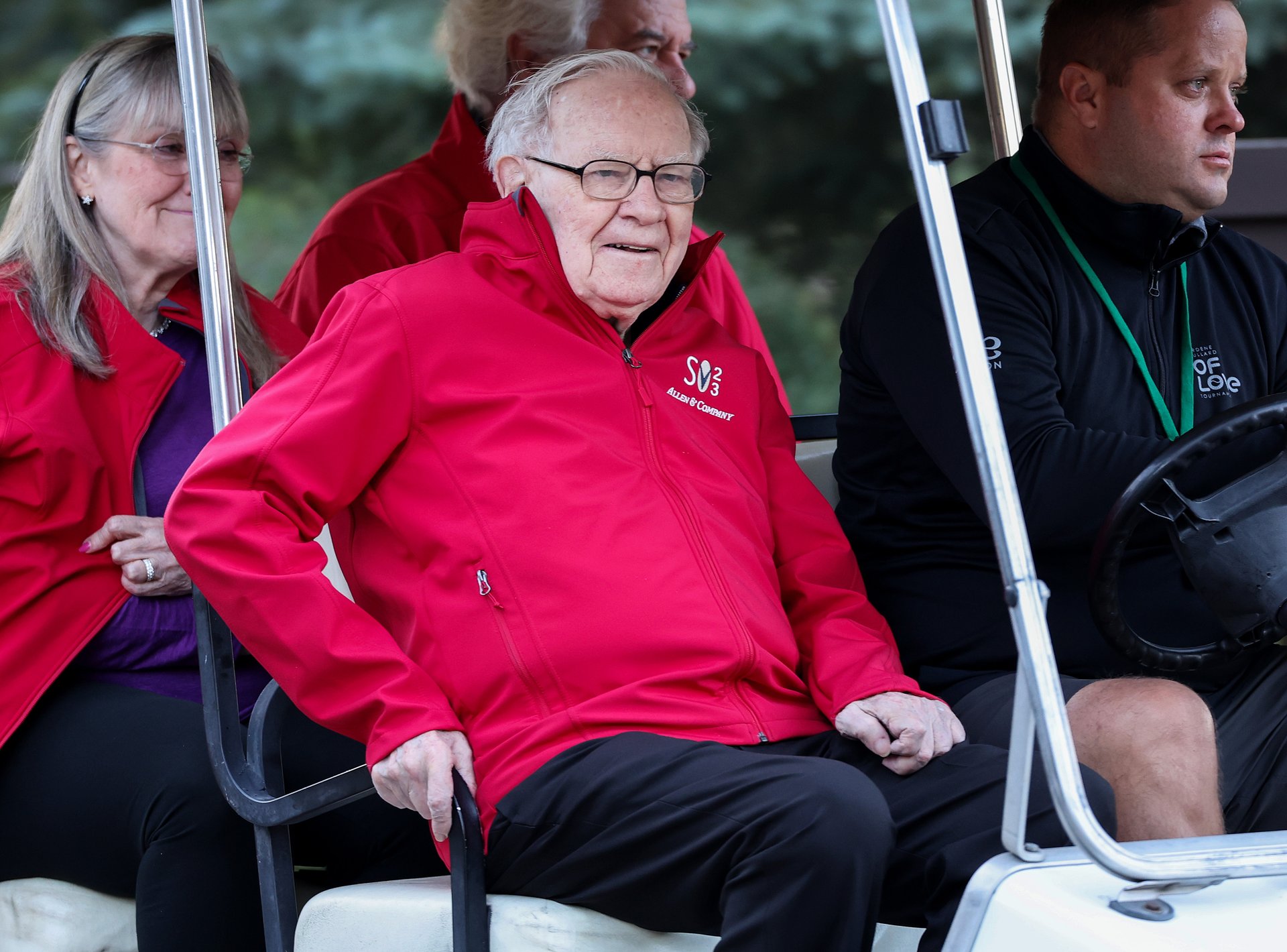Warren Buffett’s Thanksgiving letter sets the table for Berkshire’s next chapter
The 95-year-old used his Thanksgiving letter to outline new giving, old lessons, and why Berkshire’s best asset is still patience

Kevin Dietsch/Getty Images
Warren Buffett says he’s “going quiet. Sort of.” But his 6,000-word Thanksgiving letter proves he still has plenty to say.
Suggested Reading
Buffett has announced that he plans to step down as CEO at the end of the year — Greg Abel is set to take over — but at 95, the Oracle of Omaha is at the office five days a week, still doing what he has always done best: telling a story that sounds like a memoir but doubles as a master class in staying power. The letter, which is how Buffett plans to communicate with shareholders moving forward, is full of wry humor and Midwestern warmth. It feels less like a goodbye than a passing of the torch — gratitude, good sense, and a reminder that the world’s most famous investor still writes like the next-door neighbor who can’t resist turning every anecdote into an allegory.
Buffett opens with nostalgia — the 1938 appendectomy that almost killed him, a fingerprinting spree on nuns, and a lifetime of Omaha luck that kept him rooted in the city that built his myth — before easing into the business of legacy. Buffett’s genius has always been the same: He can make balance sheets sound like bedtime stories and still sneak in a life lesson before dessert.
“I have been extraordinarily fortunate,” Buffett writes, before shifting to the business of keeping that fortune organized.
He’s staying put — and staying invested
In the letter, Buffett says he’ll stop writing the annual report and step back from the marathon Q&A at the shareholder meeting, but he’s not stepping out of Berkshire. He says he’ll keep a “significant amount” of Class A shares until shareholders have the same comfort with the company’s next chapter that he and Berkshire vice chairman Charlie Munger, who died last year, did. The signal is one of continuity of ownership while the day-to-day spotlight moves elsewhere. It’s a transition in tone, not a transfer of conviction. Buffett isn’t leaving the stage; he’s just dimming the lights.
Philanthropy before the grave
The first hard number in the letter is philanthropic, not financial. Buffett announced a new wave of giving: 1,800 Class A shares, worth roughly $1.3 billion, converted into 2.7 million Class B shares and donated to four family foundations. In the letter, he says that he wants his children (all in or around their 70s) to allocate capital while they’re still in their prime and can adapt to the world as it is, not as he imagined it decades ago. “Ruling from the grave does not have a great record,” he writes. He adds that the donation “in no way reflects any change in my views about Berkshire’s prospects.”
A boardroom mirror with bad lighting
Buffett turned off the folksiness when he got to governance, using several pages to dissect what he calls a “serious problem” in executive pay. “Disclosure rules produced envy, not moderation,” he writes, urging boards to confront declining performance and aging leadership before denial becomes a management strategy. “Charlie and I made that mistake several times,” he concedes. It’s vintage Buffett — a blunt memo from a man who has watched governance drift from duty toward theater and still believes plain talk can fix it.
Berkshire’s quiet advantage
Buffett also concedes that Berkshire’s size is both a moat and a limiting factor. Don’t expect it to outrun every market darling; do expect it to outlast most. “Ideas are few — but not zero,” he wrote, noting that Berkshire’s sheer size makes fresh deals harder to find. In the letter, Buffett calls the conglomerate’s odds of a “devastating disaster” lower than any business he knows. Berkshire’s sprawl — railroads, insurers, energy utilities, manufacturers — acts as a ballast. With a little luck, he adds, Berkshire will need only “five or six CEOs over the next century.” In a market wired for quarterly miracles, Buffett is still defending the miracle of staying put.
The long-term bet
The most Buffett paragraph is, perhaps, the simplest: Berkshire’s stock has fallen by about 50% three times in his tenure — and recovered every time. “Don’t despair; America will come back and so will Berkshire shares,” he writes. That’s the same ethos that has carried him through recessions, scandals, and several presidents — but the tone lands like a shrug. Of course the system survives; it’s built on compounding faith.
Buffett closes on character, not capital: Choose your heroes carefully, emulate them, and remember that “kindness is costless but also priceless.” It’s deceptively simple, like everything he writes — another lesson from a 95-year-old man who is still at his desk, still taking meetings, still teaching capitalism to mind its manners. Buffett hasn’t gone quiet. The most influential voice in investing still sounds like it came from down the street — and the world, predictably, keeps listening.
